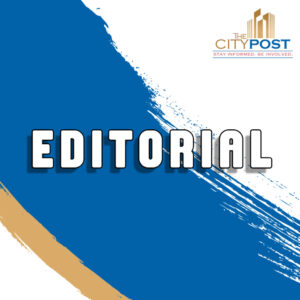The National Telecommunications Commission (NTC) is proving to be the worst enforcer of the Philippine government’s campaign to censor the websites and online outlets of news organizations, human rights advocates and alliances of farmers, workers and students.
On May 23, 2024, no less than 21 groups issued a statement urging Malacanang to give NTC a whack on its behind for preventing access to 27 websites, repeating the criticism of UN Special Rapporteur on Freedom of Expression and Opinion Irene Khan that the commission’s action was a “direct form of censorship.”
On February 5, 2024, various people’s organizations wrote the NTC to rescind its order blocking access to the 27 websites but the commission took its sweet time to respond, and when it did, it betrayed that its action was based, not on a thorough investigation but on what was essentially an instruction from the National Security Council (NSC) to block those websites.
Citing the 1987 Philippine Constitution, Khan said that no law shall be passed abridging freedom of the press and expression. Any restriction on these freedoms, Khan argued, must abide by international standards of legality, necessity and proportionality. No law grants NTC, or any other government agency like the NSC, the Anti-Terrorism Council (ATC) and the National Task Force to End Local Communist Armed Conflict (NTF-ELCAC) the right to block websites.
Signatories to the February 2024 letter said the standards cited by Khan “were not met when the NTC issued its order” and that there was no legal basis for the commission to block access to the websites of the 27 organizations, none of which has been designated as “terrorist” by the ATC. The signatories also cited Palace statements which guaranteed wider civic space and a better appreciation of basic human rights after the Duterte presidency in arguing that the NTC should not repeat the errors it committed by shutting down ABS-CBN on the basis of a vote by Duterte lapdogs at the House of Representatives to scrap the network’s franchise.
After three months, NTC answered and confirmed that the NSC “requested” the blocking of the 27 websites. It declared that come hell or high water, it would not reverse its order. Moreover, since there is a petition before the Quezon City Regional Trial Court (QC RTC) questioning the legality of the NTC order, the commission said it will have wait for the judge to decide on the issue before doing anything.
The statement by the 21 organizations was issued on May 23, 2024, right after President Ferdinand Marcos Jr. declared at a media forum that he prefers a critical press rather than a timid or scared press. Moreover, he announced the creation of a new “super body” on human rights when the Commission on Human Rights (CHR) has been recognized universally as the country’s national human rights institution (NHRI.)
The organizations urged to reverse its order and called on President Marcos Jr. to rescind this illegal, unfair and unwarranted restriction on press freedom, the freedoms of expression and association, and the right to due process. The following are the signatories to the May 23, 2024 statement: Altermidya; Amihan – National Federation of Peasant Women; Anakbayan Maskom; Bagong Alyansang Makabayan; Bulatlat; Center for Media Freedom and Responsibility (CMFR); Computer Professionals’ Union (CPU); Concerned Artists of the Philippines (CAP); College Editors Guild of the Philippines (CEGP); Davao Today; International League of Peoples’ Struggle (ILPS); Kodao Productions; National Federation of Sugar Workers (NFSW); National Union of Journalists of the Philippines (NUJP); National Union of Peoples’ Lawyers (NUPL); Pambansang Lakas ng Kilusang Mamamalakaya ng Pilipinas (PAMALAKAYA); Philippine Center for Investigative Journalism (PCIJ); Philippine Press Institute (PPI); Pinoy Weekly; Unyon ng mga Manggagawa sa Agrikultura (UMA), and; Union of Journalists of the Philippines – UP.




